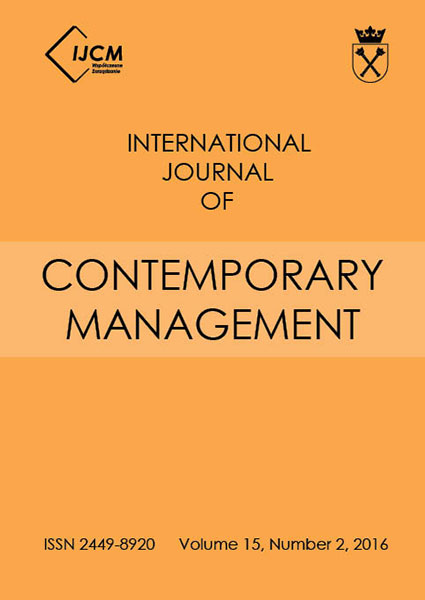Does a “Better” Employee Have Gender? Women and Men Differences in OCBs and CWBs
Does a “Better” Employee Have Gender? Women and Men Differences in OCBs and CWBs
Author(s): Dorota Kanafa-ChmielewskaSubject(s): Economy, Human Resources in Economy, Socio-Economic Research
Published by: Wydawnictwo Uniwersytetu Jagiellońskiego
Keywords: gender differences; organisational citizenship behaviours; counterproductive work behaviours; job satisfaction
Summary/Abstract: Background. Different types of organisational behaviours have become a very popular research topic, particularly the search for behavioural pattern of effectiveness: the degree to which objectives are achieved.Research aims. The study explores gender differences in expression of organisational citizenship behaviours and counterproductive work behaviours, investigating chosen antecedents of the issues.Methodology. Structural equation modelling was used to examine data based on 327 responses from 165 female and 162 male employees.Key findings. It emerges that while citizenship is the “core” organisational behaviour for women, counterproductivity is for men, and there are different antecedents for both types of behaviour, depending on the gender. Women’s OCBs could be increased by elevation of their job satisfaction and remuneration. Men’s OCBs depends on job satisfaction that does not rely on salary. Men’s CWBs depend on citizenship performance, but women’s CWBs are not related to any factors included in our models. Considering citizenship and counterproductivity, both women and men differ rather in specific behaviours than in the dimensions of OCBs and CWBs. The results could be useful in building employees’ motivational programs.
Journal: International Journal of Contemporary Management
- Issue Year: 15/2016
- Issue No: 2
- Page Range: 59-83
- Page Count: 25
- Language: English

